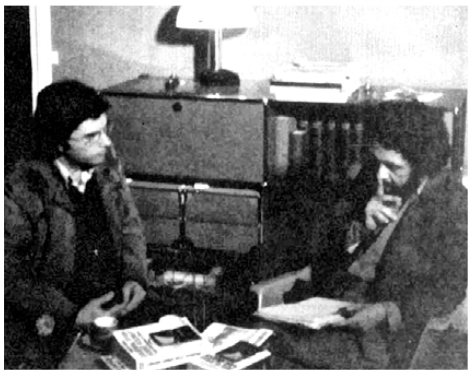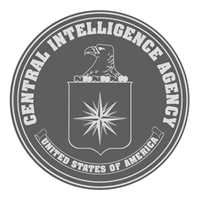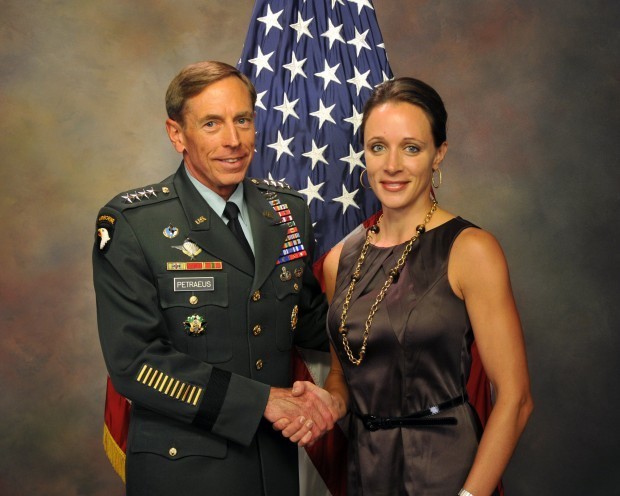Michael D’ Andrea “The Wolf” ousted as CTC Chief
Michael D’ Andrea “The Wolf” has been ousted as CIA’s CTC Chief, he has been replaced by “Chris”
Michael D’ Andrea “The Wolf” has been ousted as CIA’s CTC Chief, he has been replaced by “Chris”
CIA Officer Christopher J Chaisson
Currently stationed in Moldova
Previous Stations
Uzbekistan 2011
Baku, Azerbaijan 2008 – 2010
Kyrgyzstan
Cryptocomb welcomes any further information.
If you found this Cryptocomb post informative, please consider a Bitcoin donation at:
1LoaA5mLxoMiAzPBLMjXqMrygJARDRTb4Z
Source Sends-
Danny Casolaro was a freelance journalist who may have revealed that a government consulting firm, had paid $40 million to Iranian officials in 1980 to persuade them not to release the American hostages before the conclusion of the presidential election that saw Ronald Reagan elected president of the United States. Casolaro’s handwritten notes are posted here for historians and researchers.

“The CIA Campaign to Steal Apple’s Secrets” Via The Intercept
The Intercept also released three additional pages of the National Intelligence “Black Budget”


Colleagues,
Last September I asked an outstanding group of officers from across the Agency to examine our organization—particularly its people, processes, and structure—and to provide a report on how to ensure that CIA is optimally prepared to carry out its mission into the future. In conducting their research, Study Group members received input from thousands of Agency employees, reviewed best practices across the public and private sectors, and interviewed dozens of customers and current and former senior officers. With these recommendations as our guide, the Agency’s leadership team has made a number of decisions building upon the Agency’s Strategic Direction that are designed to strengthen our Agency in the years ahead. The decisions are designed to help us fulfill our institutional responsibility and integrated strategic vision, which is to consistently provide tactical and strategic advantage for the United States through our information, insights, and actions.
The initiatives described below are driven by two fundamental shifts in the national security landscape. The first is the marked increase in the range, diversity, complexity, and immediacy of issues confronting policymakers; and the second is the unprecedented pace and impact of technological advancements.
When previously faced with such shifts, this Agency proved it can adapt and transform in significant ways, such as our response to the emergence of global terrorism. The time has come for us to do so again, which will require bold action in four interrelated areas. First, we must ensure that we continue to attract the best from the broadest pool of American talent, and develop our officers with the skills, knowledge, and Agency-wide perspective they will need to lead us into the future. Second, we must be positioned to embrace and leverage the digital revolution to the benefit of all mission areas. Third, we need an organizational construct and business practices that support our decisionmaking process. And fourth, we must allow all of our Agency’s capabilities to be brought to bear as quickly and coherently as possible to meet the Nation’s challenges.
Overall Plan and Initial Steps
Theme One: Invest in our people by enhancing our talent and leadership development. We must make it easier for our officers to acquire new skills, to strengthen their leadership abilities, and to deepen their distinctive tradecrafts while also broadening their understanding of CIA, the intelligence profession, and the national security mission. This was the number one issue raised by the workforce to the Study Group and is foundational to all other initiatives. Building on the Agency’s Strategic Direction, we are making the following changes to the ways in which we are organized for, practice, and think about talent development:
Theme Two: Embrace and leverage the digital revolution and innovate across our missions. Digital technology holds great promise for mission excellence, while posing serious threats to the security of our operations and information, as well as to U.S. interests more broadly. We must place our activities and operations in the digital domain at the very center of all our mission endeavors. To that end, we will establish a senior leadership position to oversee the acceleration of digital and cyber integration across all of our mission areas
Theme Three: Modernize the way we do business. The pace of world events and technological change demands that Agency leaders be able to make decisions with agility, at the appropriate level, with the right information, and in the interests of the broader enterprise. We must have the capacity to make the sound strategic decisions needed to build a better Agency and run it efficiently, even as we respond to urgent external requirements. We must empower our officers to address the operational, analytical, technological, support, and other issues that are at the heart of what we do every day. Accordingly, we will:
Theme Four: Integrate our capabilities better to bring the best of the Agency to all mission areas. During my time as Director, I have repeatedly witnessed that this Agency’s greatest mission successes result from collaboration among all of our mission elements. Never has the need for the full and unfettered integration of our capabilities been greater. If we are to meet the challenges of the current national security environment, we must take some bold steps toward more integrated, coherent, and accountable mission execution. We will stand up Mission Centers that will bring the full range of operational, analytic, support, technical, and digital personnel and capabilities to bear on the nation’s most pressing security issues and interests.
Each new Mission Center will be led by an Assistant Director. These new Centers will not be tethered to any single Directorate; rather, we will organize within them the full range of Agency officers and elements possessing the expertise and capabilities needed to execute mission. The Mission Centers will work closely with all Agency elements to further enhance our integration and interoperability. The Assistant Directors will be accountable for integrating and advancing the mission—in all of its various forms—and for overall mission accomplishment in their respective geographic or functional area. They will be responsible for consistently preempting threats and furthering U.S. national security objectives with the best possible information, technology, analysis, and operations.
The Assistant Directors will work closely with the Directorate heads, who will retain overall responsibility and accountability for the delivery of excellence in their respective occupations across all of the Centers. To best reflect the mission and responsibilities of the Directorates, we will rename the National Clandestine Service the Directorate of Operations, and the Directorate of Intelligence will be the Directorate of Analysis. The Directorate heads will be responsible for developing officers with the specialized skills unique to the Directorates, for developing tradecraft, and for maintaining a strategic perspective that cuts across all issues and regions.
Along with the rest of the CIA leadership team, you can expect my absolute commitment in devoting the necessary attention and making the tough decisions required to lead these changes. We will move as rapidly as possible, and we will keep you informed of our progress. We look to all of you and challenge each of you to unleash the incredible intellect and dedication you bring every day to the most demanding mission challenges. We ask for your support as well as your input and feedback as we move forward with these changes. Together, we will make sure this extraordinary organization continues to reflect the absolute best this Country has to offer and to be indispensable to our Nation’s security for many, many years to come.
John
Former Spy/DCIA Petraeus has struck a deal with the U.S Justice Department. Former Spy/DCIA Petraeus will plead guilty to one count of unauthorized removal and retention of classified material.

The spies who penetrated the DCIA office